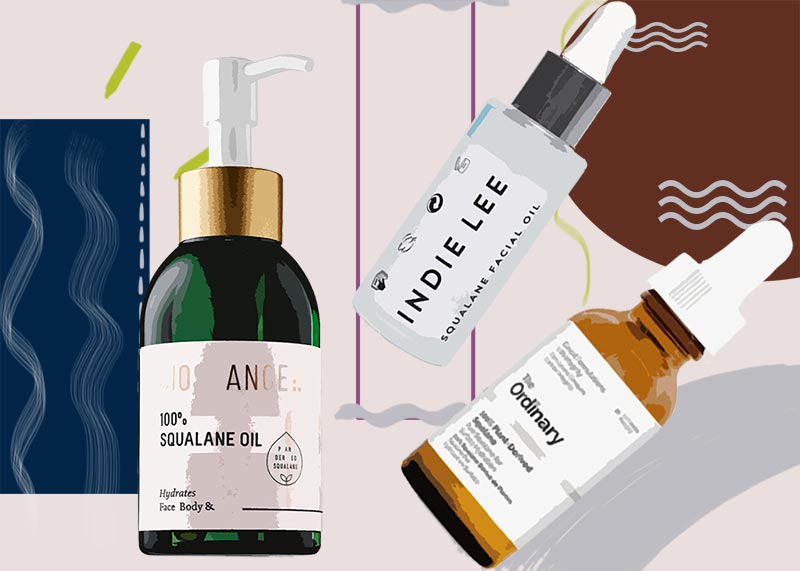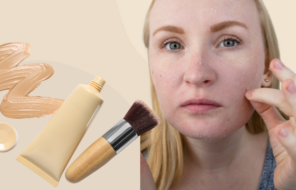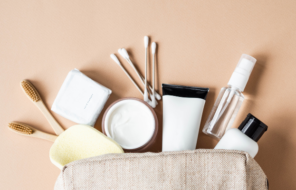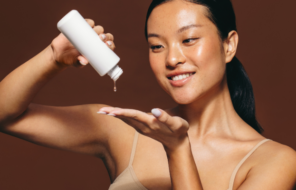Have you heard of squalane? It may be a little tricky to pronounce at first (“skwa-lane,” just for the record), but it’s worth looking into. Plenty of skincare products on the market today include squalane because it’s moisturizing for multiple skin types in addition to several other benefits.
But are there concerns with squalane? How about side effects? We researched this skin-boosting ingredient and developed this handy guide to help you navigate the world of squalane for skin.
What is squalane?
Squalane is a type of lipid naturally found in our bodies and some animals. Squalane is, in part, what body oils consist of. Because it tends to be a fatty compound, it’s actually quite moisturizing, so it’s becoming a more common ingredient in hydrating skincare products.
Squalane comes from squalene, which sounds very similar, but there’s a big difference. Squalene is found in animals (and plants), but it’s not ideal in skincare because it isn’t shelf stable. So, squalene transforms into squalane (which is more stable) when it’s mixed with hydrogen — in other words, when it’s hydrogenated.
The benefits of squalane
So, we know squalane is moisturizing. But what are some of its other benefits? It turns out, there are quite a few.
- It boosts hair smoothness. Its moisturizing properties make for a great addition in haircare products. Shampoo or other hair products containing squalane coat your hair, giving it a smoother, shinier look.
- It reduces skin dryness. Of course, squalane can hydrate your skin just as it does your hair. Using it over a serum creates a bit of a seal that keeps the serum on your skin, similar to what it does to your hair. This means you reap maximum benefits from your products, which can be especially helpful if your skin tends to be quite dry.
- It’s non-comedogenic. If you have oily skin, squalane can work just as well. That’s because it’s non-comedogenic, so it won’t contribute to clogged pores and acne.
- It may be anti-inflammatory. Squalane is said to calm the redness and swelling that goes hand in hand with acne or eczema.
And that’s not all. Squalane steps in to give your skin a more supple appearance. Plus, you can use it to reduce the look of wrinkles.
Products with squalane
Quite a few products may include squalane, including the following:
- Creams or moisturizers that fight signs of aging
- Lipglosses
- Sunblocks
- Deodorants
- Conditioners
- Eye makeups
- Foundations
- Cleansers
Are there downsides to squalane?
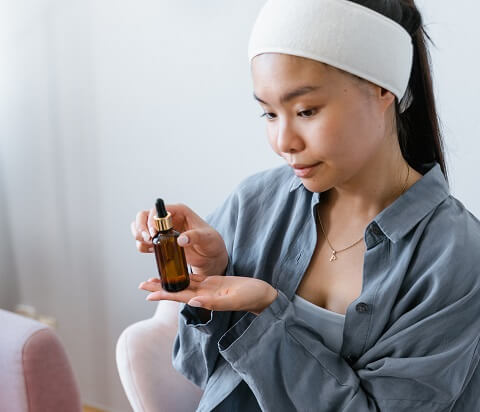
With so many amazing benefits, squalane sounds a little too good to be true. That’s not necessarily the case — it might be important to know where the squalane in your products comes from.
As noted, squalane is something found in both plants and animals. Some skincare products may use squalane that comes from animals, and more specifically, sharks. Other skincare products use squalane that comes from plants.
Because some studies report a significant decrease in some shark populations, there could be an ethical concern about using squalane from sharks. It’s a personal choice, but if you prefer squalane that comes from plants, many brands don’t use squalane sourced from sharks. If you’re unsure where squalane comes from in a particular product, you may want to contact the brand to ask.
The side effects of squalane
Overall, there aren’t really side effects to using squalane. There are, however, some things to keep in mind when using products that contain the ingredient. First, know that using products with squalane and retinol might contribute to dry skin. In that case, you may want to swap out the type of retinol you use for something gentler.
Second, if you experience a reaction to a skincare product with squalane, it could be due to other ingredients in the product. Things like dyes and fragrances may cause irritation, especially for people with sensitive skin.
Caring for your skin with squalane
Squalane hydrates skin and hair, calms redness and inflammation, and won’t clog your pores. It’s found in many types of skincare and haircare products and is a great option for both dry and oily skin types. Though there aren’t side effects associated with using squalane, you may want to verify where the squalane in your skin products comes from in light of the potential threat to sharks. Ultimately, adding squalane to your routine can be incredibly beneficial for your skin.

